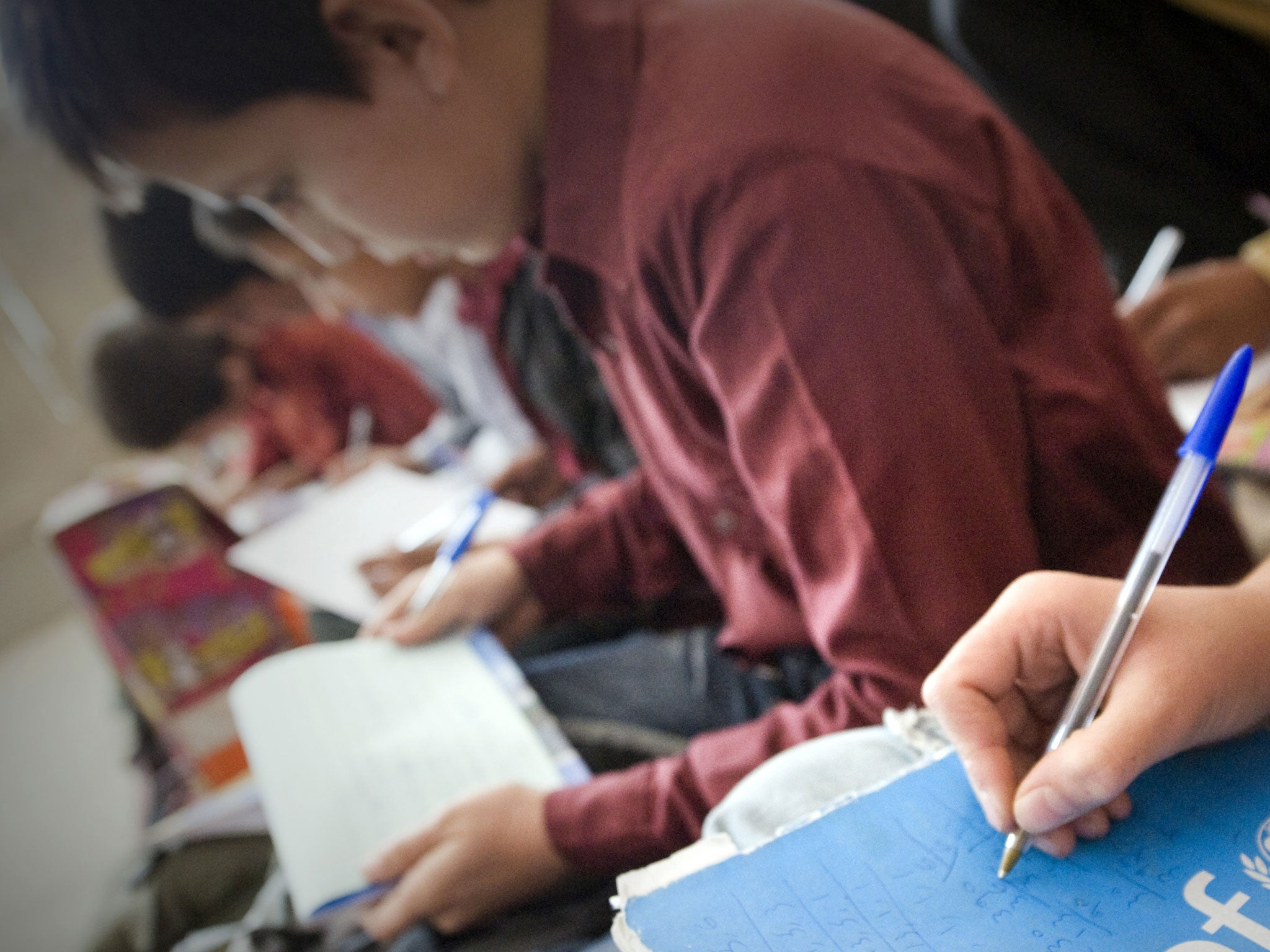Education minister Elizabeth Truss to travel to Shanghai to find out secrets behind maths success
Ms Truss suggests UK's productivity and growth is hampered by poor maths skills

The UK will suffer economic decline if attitudes towards maths do not change, according to Elizabeth Truss.
The education minister suggested that the nation's productivity and growth is being put under threat by poor maths skills.
Ms Truss's comments come the week before she is due to lead a trip to Shanghai, China, to find out why their results in the subject are so high.
Recent international tests put China, along with a number of other Asian nations , at the top for maths skills.
“Shanghai is the top-performing part of the world for maths - their children are streets ahead,” Ms Truss said.
“Shanghai and Singapore have teaching practices and a positive philosophy that make the difference. They have a belief that diligence redeems lack of ability.
“Our new curriculum has borrowed from theirs because we know it works - early learning of key arithmetic, and a focus on times tables and long division, for instance.”
She added that students in Shanghai have a “can-do attitude to maths, which contrasts with the long-term anti-maths culture that exists here”.
“The reality is that unless we change our philosophy, and get better at maths, we will suffer economic decline,” Ms Truss said.
“At the moment our performance in maths is weakening our skills base and threatening our productivity and growth. I am determined to change this.”
The minister, who will be joined by a number of headteachers on the China trip, is due to visit three schools and teacher training centres during her visit, the Department for Education (DfE) said.
The department said that the visit was the latest step in a drive to raise maths standards, and will look at what has made areas of the Far East among the best in the world at teaching the subject.
More than half a million 15-year-olds took part in the 2012 Programme for International Student Assessment (Pisa) study, with the findings published by the Organisation for Economic Co-operation and Development (OECD) in December.
Overall, the UK came 26th in maths with an average score of 494. This was broadly the same as the average for the subject, and on a par with nations such as the Czech Republic, France,and Norway.
But it also leaves the UK lagging far behind leading nations including Shanghai, Singapore, Hong Kong, South Korea and Japan.
A new analysis of the data, published yesterday, found that the children of cleaners in Shanghai and Singapore outperform the sons and daughters of UK doctors and lawyers in global maths tests.
In the UK, the children of parents with a “professional” job - such as doctor or lawyer - scored 525.94 points on average in the PISA maths test.
In Shanghai, China, the sons and daughters of parents with “elementary” occupations - such as cleaners and catering assistants - scored 568.9 points on average. In Singapore, this group scored 533.58 points.
A separate survey by the business group CBI, published last year, concluded that around three in 10 employers are dissatisfied with the standard of school and college leaver's numeracy skills.
The DfE said that the government was prioritising maths because of the subject's importance to young people competing for jobs, as well as its importance to the economy.
A number of reforms are already being introduced, such as banning calculators from tests for 11-year-olds, requiring teenagers who do not get a grade C at GCSE in maths to continue studying the subject, new maths qualifications for post-16 students and bursaries to attract top maths graduates into teaching.
PA
Join our commenting forum
Join thought-provoking conversations, follow other Independent readers and see their replies
Comments
Bookmark popover
Removed from bookmarks